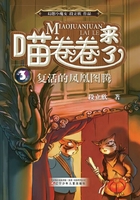"Land!" was the first cry of the storm-tossed mariners of Columbus. For three centuries the leading fact of American history has been that soon after 1600 a body of Europeans, mostly Englishmen, settled on the edge of the greatest piece of unoccupied agricultural land in the temperate zone, and proceeded to subdue it to the uses of man. For three centuries the chief task of American mankind has been to go up westward against the land and to possess it. Our wars, our independence, our state building, our political democracy, our plasticity with respect to immigration, our mobility of thought, our ardor of initiative, our mildness and our prosperity, all are but incidents or products of this prime historical fact.*
* Lecture by J. Franklin Jameson before the Trustees of the Carnegie Institution, at Washington, in 1912, printed in the "History Teacher's Magazine," vol. IV, 1913, p. 5.
It is seldom that one's attention is so caught and held as by the happy suggestion that American interest in land or rather interest in American land--began with the discovery of the continent. Even a momentary consideration of the subject, however, is sufficient to indicate how important was the desire for land as a motive of colonization. The foundation of European governmental and social organizations had been laid in feudalism--a system of landholding and service. And although European states might have lost their original feudal character, and although new classes had arisen, land-holding still remained the basis of social distinction.
One can readily imagine that America would be considered as El Dorado, where one of the rarest commodities as well as one of the most precious possessions was found in almost unlimited quantities that family estates were sought in America and that to the lower classes it seemed as if a heaven were opening on earth.
Even though available land appeared to be almost unlimited in quantity and easy to acquire, it was a possession that was generally increasing in value. Of course wasteful methods of farming wore out some lands, especially in the South; but, taking it by and large throughout the country, with time and increasing density of population the value of the land was increasing. The acquisition of land was a matter of investment or at least of speculation. In fact, the purchase of land was one of the favorite get-rich-quick schemes of the time. George Washington was not the only man who invested largely in western lands. A list of those who did would read like a political or social directory of the time. Patrick Henry, James Wilson, Robert Morris, Gouverneur Morris, Chancellor Kent, Henry Knox, and James Monroe were among them.*
* Not all the speculators were able to keep what they acquired.
Fifteen million acres of land in Kentucky were offered for sale in 1800 for nonpayment of taxes. Channing, "History of the United States," vol. IV, p. 91.
It is therefore easy to understand why so much importance attached to the claims of the several States and to the cession of that western land by them to the United States. But something more was necessary. If the land was to attain anything like its real value, settlers must be induced to occupy it. Of course it was possible to let the people go out as they pleased and take up land, and to let the Government collect from them as might be possible at a fixed rate. But experience during colonial days had shown the weakness of such a method, and Congress was apparently determined to keep under its own control the region which it now possessed, to provide for orderly sale, and to permit settlement only so far as it might not endanger the national interests. The method of land sales and the question of government for the western country were recognized as different aspects of the same problem. The Virginia offer of cession forced the necessity of a decision, and no sooner was the Virginia offer framed in an acceptable form, in 1783, than two committees were appointed by Congress to report upon these two questions of land sales and of government.
Thomas Jefferson was made chairman of both these committees. He was then forty years old and one of the most remarkable men in the country. Born on the frontier--his father from the upper middle class, his mother "a Randolph"--he had been trained to an outdoor life; but he was also a prodigy in his studies and entered William and Mary College with advanced standing at the age of eighteen. Many stories are told of his precocity and ability, all of which tend to forecast the later man of catholic tastes, omnivorous interest, and extensive but superficial knowledge; he was a strange combination of natural aristocrat and theoretical democrat, of philosopher and practical politician.
After having been a student in the law office of George Wythe, and being a friend of Patrick Henry, Jefferson early espoused the cause of the Revolution, and it was his hand that drafted the Declaration of Independence. He then resigned from Congress to assist in the organization of government in his own State. For two years and a half he served in the Virginia Assembly and brought about the repeal of the law of entailment, the abolition of primogeniture, the recognition of ******* of conscience, and the encouragement of education. He was Governor of Virginia for two years and then, having declined reelection, returned to Congress in 1783. There, among his other accomplishments, as chairman of the committee, he reported the Treaty of Peace and, as chairman of another committee, devised and persuaded Congress to adopt a national system of coinage which in its essentials is still in use.















